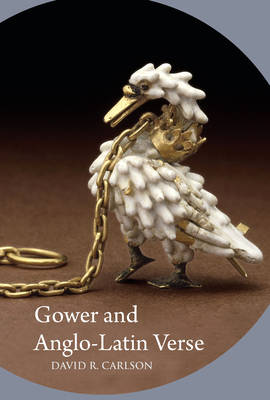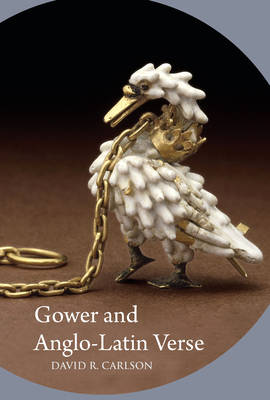
Je cadeautjes zeker op tijd in huis hebben voor de feestdagen? Kom langs in onze winkels en vind het perfecte geschenk!
- Afhalen na 1 uur in een winkel met voorraad
- Gratis thuislevering in België vanaf € 30
- Ruim aanbod met 7 miljoen producten
Je cadeautjes zeker op tijd in huis hebben voor de feestdagen? Kom langs in onze winkels en vind het perfecte geschenk!
- Afhalen na 1 uur in een winkel met voorraad
- Gratis thuislevering in België vanaf € 30
- Ruim aanbod met 7 miljoen producten
Zoeken
Omschrijving
This study offers a novel paradigm for explaining the late-medieval Anglo-Latin verse, by analyzing the development of the writings of the English poet John Gower (ca. 1330-1408), who made major contributions to English- and French-language poetry, in addition to being the pre-eminent Latin poet of the Age of Chaucer. In addition to translating amongst the three languages in which he worked, Gower invented a plain style for Latin public poetry that was like his better-known English-language Confessio amantis in emphasizing regular prosodic simplicity; and his plain style was emulated by other Anglo-Latin poets. Gower's Latin public poetry contradicts the other kinds of Latin verse in use in England at the time: on the one hand, the demotic accentual-syllabic rhymed verse in use amongst clerical controversialists and other kinds of social polemicists, characterized by language-mixing and prosodic fluidity within individual poems; and on the other, the hyper-sophisticated poetria nova of the schoolmen. At the end of his career, however, Gower rejected his own plain-style Latin-verse invention to take up instead the late scholastic style, but only at the moment of its decadence, when the humanist neo-classicism that disdained scholasticism would already have begun to arrive in England.
Specificaties
Betrokkenen
- Auteur(s):
- Uitgeverij:
Inhoud
- Aantal bladzijden:
- 358
- Taal:
- Engels
Eigenschappen
- Productcode (EAN):
- 9780888442260
- Verschijningsdatum:
- 25/03/2022
- Uitvoering:
- Hardcover
- Formaat:
- Genaaid
- Afmetingen:
- 170 mm x 236 mm
- Gewicht:
- 716 g

Alleen bij Standaard Boekhandel
+ 201 punten op je klantenkaart van Standaard Boekhandel
Beoordelingen
We publiceren alleen reviews die voldoen aan de voorwaarden voor reviews. Bekijk onze voorwaarden voor reviews.









